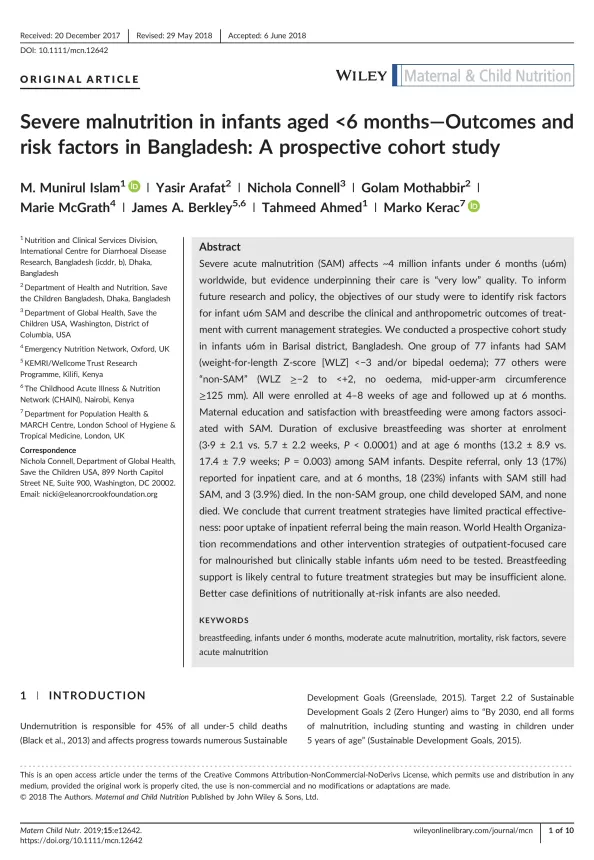Severe malnutrition in infants aged <6 months—Outcomes and risk factors in Bangladesh: A prospective cohort study
Publication details
Abstract
Severe acute malnutrition (SAM) affects ~4 million infants under 6 months (u6m) worldwide, but evidence underpinning their case is "very low" quality. To inform future research and policy, the objectives of our study were to identify risk factors for infant u6m SAM and describe the clinical and anthropometric outcomes of treatment with current management strategies. We conducted a prospective cohort study in infants u6m in Barisal district, Bangladesh. One group of 77 infants had SAM (weight-for-length Z-score [WLZ] <-3 and/or bipedal oedema); 77 others were "non-SAM" (WLZ â¥-2 to <+2, no oedema, mid-upper-arm circumference â¥125 mm). All were enrolled at 4-8 weeks of age and followed up at 6 months. Maternal education and satisfaction with breastfeeding were among factors associated with SAM. Duration of exclusive breastfeeding was shorter at enrolment (3.9 ± 2.1 vs. 5.7 ± 2.2 weeks, P < 0.0001) and at age 6 months (13.2 ± 8.9 vs. 17.4 ± 7.9 weeks; P = 0.003) among SAM infants. Despite referral, only 13 (17%) reported for inpatient care, and at 6 months, 18 (23%) infants with SAM still had SAM, and 3 (3.9%) died. In the non-SAM group, one child developed SAM, and none died. We conclude that current treatment strategies have limited practical effectiveness: poor uptake of inpatient referral being the main reason. World Health Organization recommendations and other intervention strategies of outpatients-focused care for malnourished but clinically stable infants u6m need to be tested. Breastfeeding support is likely central to future treatment strategies but may be insufficient alone. Better case definitions of nutritionally at-risk infants are also needed.

